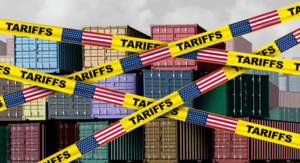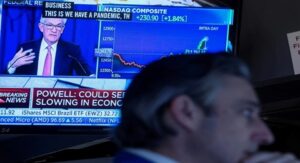
How Rising Geopolitical Risks Threaten Global Sustainability
Rising geopolitical risks threaten global sustainability as the delicate balance of international cooperation faces unprecedented strains. The once-sturdy pillars of global economic integration are now under siege, threatened by escalating tensions among major powers and a deepening chasm between the Global North and South.
As geopolitical rivalries intensify and security concerns shape economic policies, the specter of fragmentation looms large, casting a shadow over efforts to address pressing challenges such as climate change and AI regulation.
Yet, amidst these challenges, there remains a glimmer of hope—a call for world leaders to prioritize collective governance and invest in global public goods through platforms like the G20, steering us towards a more sustainable and resilient future.
Geopolitical Risks Threaten Global Sustainability
In the midst of today’s economic exuberance, there lurks a contradictory undercurrent. While markets soar on the wings of technology and energy, the recent Spring Meetings of the World Bank and the International Monetary Fund unveiled a somber tone.
These normally mundane gatherings resounded with warnings about the escalating dangers of economic fragmentation. The global landscape stands at a critical juncture, where rising geopolitical risks threaten the very sustainability of our interconnected world.
Here are six key points illuminating this perilous predicament:
Read More: Economic Challenges in the Middle East
Table of Contents
1. Fragile Foundations of Global Cooperation
The belief that a globally interdependent economy could coexist harmoniously with a geopolitical framework based on the sovereignty of nearly 200 states was, perhaps, an idealistic notion from the start. Rising geopolitical risks threaten global sustainability. This paradigm, however, underwent a collapse in the 1930s, only to be rebuilt post-World War II on the pillars of agreed-upon rules, shared institutions, and crisis management mechanisms.
Today, these foundations are rapidly eroding, endangering the collaborative fabric of the global economy. As geopolitical tensions escalate, the risk of fragmentation looms large, challenging the very essence of global sustainability and cooperation.
Read More: The Irony of American-Chinese Economic Relations
2. Geopolitical Risks as Catalysts for Fragmentation
The resurgence of geopolitical tensions, as underscored by the rising stakes over Taiwan, has bred mistrust among nations, undermining their willingness to cooperate. This atmosphere threatens to dismantle the global economic order.
Security considerations are now exerting a significant influence on economic policies, steering nations down a precarious path where unilateral actions could spark escalations and lead to severe systemic disruptions. Rising geopolitical risks threaten global sustainability in this delicate balance, where cooperation is essential yet increasingly fragile.
As countries navigate these complexities, the need for diplomatic dialogue and multilateral solutions becomes ever more urgent to ensure global stability and sustainability.
Read More: The Role of BRICS in De-dollarization
3. Growing Gulf Between Global North and South
A deepening chasm separates the Global North from the Global South, exacerbated by dwindling support for developing economies amidst the COVID-19 aftermath and climate change challenges. Rising geopolitical risks threaten global sustainability this divergence halts the decades-long trajectory towards convergence, fostering resentment and reluctance among Southern nations to align with Western geopolitical agendas.
The reversal of financial flows to developing countries further underscores this unsettling trend. As tensions escalate, the delicate balance of global cooperation and sustainable development hangs in the balance, imperiled by the widening gap between affluent and struggling nations. Efforts to bridge this divide are imperative to secure a more equitable and stable future for all.
Read More: Global Banking Turmoil
4. Escalating Climate Risks and Disasters
The intensification of climate-related calamities poses another dimension to economic fragmentation. Rising geopolitical risks threaten global sustainability as floods, fires, and droughts become increasingly frequent and severe. Nations confront destabilization risks without a global safety net in place.
Rather than fostering collaborative efforts to address climate change, countries vie for dominance in green technologies, amplifying the discord. This competition not only hampers progress but also exacerbates disparities, hindering the collective ability to mitigate environmental challenges.
As geopolitical tensions rise, the urgency of unified action to combat climate change becomes ever more imperative for sustaining global stability and resilience against the mounting threats of the future.
Read More: Unlocking Amazon Conservation Beyond Bioeconomy
5. Nationalism vs. Global Cooperation in AI Advancement
The rapid advancement of artificial intelligence (AI) accentuates the divergence between nationalistic pursuits and global cooperation imperatives. Rising geopolitical risks threaten global sustainability. While AI holds transformative potential, its unregulated proliferation risks exacerbating inequalities and disrupting labor markets.
Collaborative efforts are indispensable to ensure AI deployment generates equitable outcomes and fosters societal progress. In a world increasingly defined by technological innovation, navigating the delicate balance between harnessing AI’s benefits and mitigating its adverse effects demands concerted international cooperation.
Only through collective action can we steer AI towards a future that promotes shared prosperity and sustains global stability.
Read More: The Economics of War
6. Imperative for Collective Action
Despite the looming perils, there exist resilient elements within the global economic system. The commitment of the Global South to interdependence and global governance, coupled with the interconnectedness of the private sector, offers glimmers of hope. Rising geopolitical risks threaten global sustainability, however, the urgency of the moment demands decisive action from world leaders.
Prioritizing national security must be balanced with concerted efforts to strengthen communication channels and invest in global public goods. Recognizing the interconnected nature of today’s challenges, collaborative strategies are essential to mitigate risks and foster sustainable development. It is imperative to navigate these complexities with foresight and cooperation to safeguard the future of our planet.
Read More: Geopolitics of Economic Development in the Middle East
Bottom Line
In conclusion, rising geopolitical risks threaten global sustainability, the trajectory of our global economic system hangs precariously in the balance. The path ahead is fraught with challenges, but history and empirical evidence underscore the imperative for collective action.
Leaders must transcend parochial interests and embrace multilateralism to navigate the complexities of our interconnected world. Failure to do so risks unraveling the very fabric of our shared prosperity and stability. The time for decisive action is now, lest we condemn future generations to inherit a world plagued by strife and uncertainty.







